
Frances Anne "Fanny" Kemble was a British actress from a theatre family in the early and mid-19th century. She was a well-known and popular writer and abolitionist, whose published works included plays, poetry, eleven volumes of memoirs, travel writing and works about the theatre.
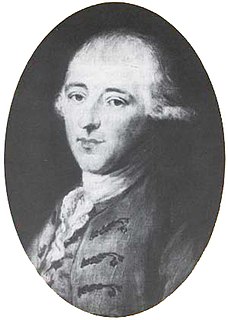
Pierce Butler was an Irish-American South Carolina rice planter, slaveholder, politician, an officer in the Revolutionary War, and a Founding Father of the United States. He served as a state legislator, a member of the Congress of the Confederation, a delegate to the 1787 Constitutional Convention where he signed the United States Constitution, and was a member of the United States Senate.
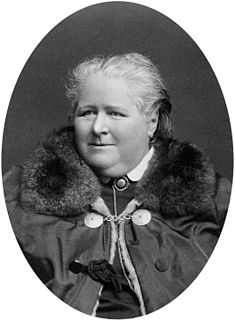
Frances Power Cobbe was an Anglo-Irish writer, philosopher, religious thinker, social reformer, anti-vivisection activist and leading women's suffrage campaigner. She founded a number of animal advocacy groups, including the National Anti-Vivisection Society (NAVS) in 1875 and the British Union for the Abolition of Vivisection (BUAV) in 1898, and was a member of the executive council of the London National Society for Women's Suffrage.
Roswell King was an American slave owner, plantation manager, businessman, planter, and industrialist. Together with his son, Barrington King, he founded Roswell Manufacturing Company in the Georgia Piedmont, establishing a cotton mill and industrial complex. They co-founded the town of Roswell, Georgia, inviting friends to be part of its and the mill's development in the 1830s. Roswell's family originally hailed from Delaware but later moved to Connecticut where they were among the first residents of New Haven and later Windsor. As a teen, Roswell participated in the American Revolutionary War as part of the naval resistance before moving to Georgia's low country.

Elizabeth Nichol was a 19th-century British abolitionist, anti-segregationist, woman suffragist, chartist and anti-vivisectionist. She was active in the Peace Society, the Temperance movement and founded the Darlington Ladies Anti-Slavery Society. In 1853 she married Dr. John Pringle Nichol (1804–1859), Regius Professor of Astronomy at the University of Glasgow. She was one of about six women who were in the painting of the World Anti-Slavery Convention of 1840.

Peter Alfred Taylor was a British politician, anti-vaccinationist and radical.

Elizabeth Vassall Fox, Baroness Holland was an English political hostess and the wife of Whig politician Henry Vassall-Fox, 3rd Baron Holland. With her husband, and after his death, she hosted political and literary gatherings at their home, Holland House.

Aubrey House is a large 18th-century detached house with two acres of gardens in the Campden Hill area of Holland Park in west London, W8. It is a private residence.
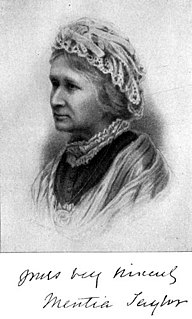
Clementia Taylor was an English women's rights activist and radical.

Mary Charlotte Lloyd was a Welsh sculptor who studied with John Gibson in Rome and lived for decades with the well-known philosopher, animal welfare advocate, and feminist Frances Power Cobbe.

In the United States, abolitionism, the movement that sought to end slavery in the country, was active from the late colonial era until the American Civil War, the end of which brought about the abolition of American slavery through the Thirteenth Amendment to the United States Constitution.
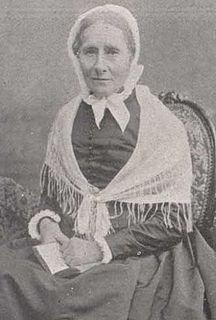
Elizabeth (Eliza) Wigham was a British campaigner for women's suffrage, anti-slavery, peace and temperance in Edinburgh, Scotland. She was involved in several major campaigns to improve women's rights in 19th-century Britain, and has been noted as one of the leading citizens of Edinburgh. Her stepmother, Jane Smeal, was a leading activist in Glasgow and together made the Edinburgh Ladies' Emancipation Society. Her brother John Richardson Wigham was a prominent lighthouse engineer.

Jane Wigham was a leading Scottish abolitionist, and was the secretary of the Glasgow Ladies' Emancipation Society.

Mary Anne Estlin was a British abolitionist and leading figure in anti-slavery and anti-prostitution campaigns in Britain.
Charlotte Manning was a British feminist, scholar and writer. She was the first head of Girton College.
Elizabeth Malleson was an English educationalist, suffragist and activist for women's education and rural nursing.
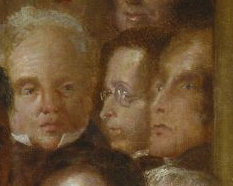
Stafford Allen was a British industrialist, abolitionist, Quaker and philanthropist. He founded the company Stafford Allen and Sons. He supported a number of causes and after fifty years of support he was made a Vice-President of the British and Foreign Anti-Slavery Society.

Butler Island Plantation is a former rice plantation located on Butler Island on the Altamaha River delta just South of Darien, Georgia. It was originally owned by Major Pierce Butler (1744–1822), and was also owned by Tillinghast L'Hommedieu Huston and then R. J. Reynolds Jr. The plantation is managed by the Georgia Department of Natural Resources.

Caroline Ashurst Biggs (1840–1889) was an advocate for women’s rights and a third generation member of the Ashurst family of radical activists. Born in Leicester on 23 August 1840, she was the second child of Matilda Ashurst Biggs and Joseph Biggs. She died at 19 Notting Hill Square in London on 4 September 1889. At the World's Columbian Exposition in Chicago in 1893, her photograph was included in an exhibition of Portraits of Eminent British Women, in a section devoted to Pioneers in Philanthropy and General Advancement of Women.

Journal of a Residence on a Georgian Plantation in 1838–1839 is an account by Fanny Kemble of the time spent on her husband's plantation in Butler Island, Georgia. The account wasn't published until 1863, after her marriage had ended and the American Civil War had begun, when according to PBS she decided to publish it "in response to England's hostility toward the North and Lincoln's Emancipation Proclamation."
















